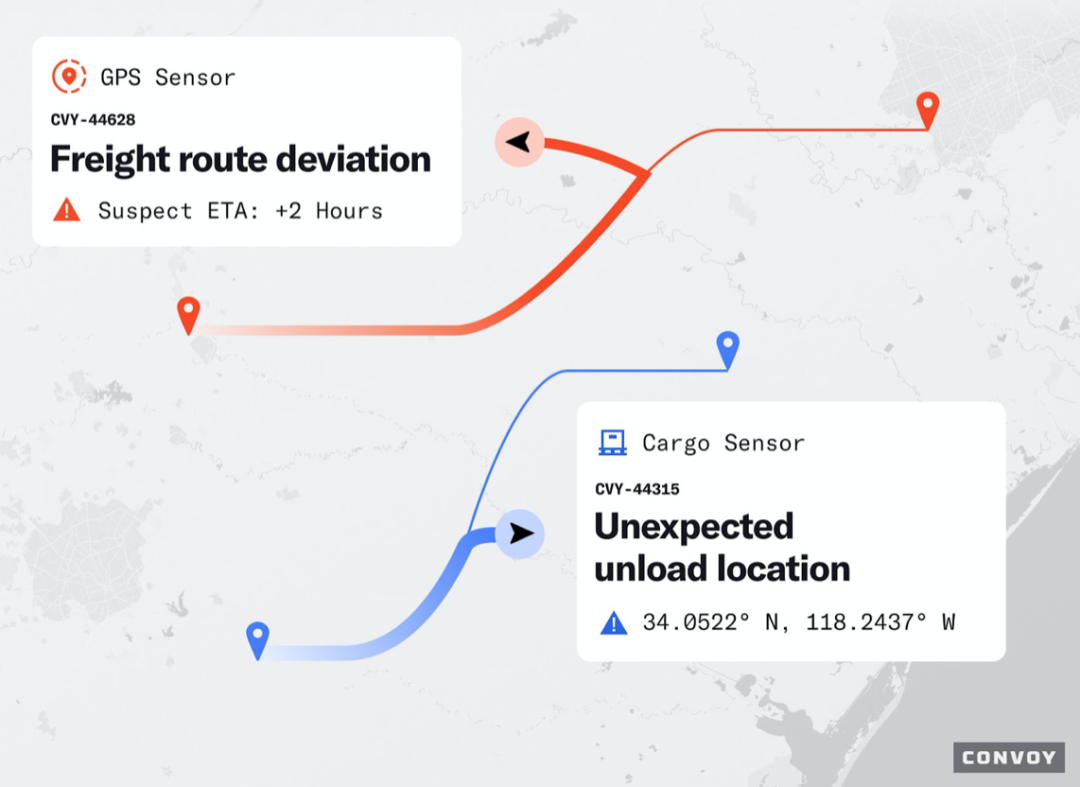Convoy unveils real-time fraud detection system
System combines machine learning, forensic behavioral data, automation, and industry collaboration

As shippers, brokers, and carriers report a sharp spike in cargo theft, the digital freight matching (DFM) firm Convoy today unveiled a technology solution that it says has nearly cleared the problem from its network of users.
Convoy said its real-time fraud detection system has reduced cargo theft, double brokering, and other forms of fraud in its network by 90%, even as the industry experienced a 41% increase.
The system has been running in beta tests with customers since January, combining machine learning, forensic behavioral data, automation, and industry collaboration. According to Convoy, the result allows its users to monitor risk in real-time, proactively block fraud before it can occur, and more quickly apprehend perpetrators.
Those early results are promising, but players throughout the country’s supply chain face a steep climb to eradicate the growing problem. A raft of transportation industry players have also launched recent tools to fight freight theft, including fellow DFM startup Transfix, payments network provider TriumphPay, cargo security firm Overhaul, carrier identity management firm Highway, and third party logistics provider (3PL) trade group Transportation Intermediaries Association (TIA).
Those efforts are coming because cargo theft costs shippers hundreds of millions of dollars every year, totaling nearly a quarter of a billion dollars of stolen freight within the U.S. alone in 2022. And the challenge is growing tougher, as attacks have become more sophisticated, with thieves using technology to target high-value loads and often working as part of larger cargo theft rings, Convoy said.
That continuous evolution and growing sophistication of cargo theft techniques mean that effective defenses must use technology to maintain “always on” constant vigilance and continual updating of companies’ behavior, according to Convoy’s Head of Performance, Compliance, and Trust, Eric Libby.
Libby says that that approach can help defeat the three main categories of crime, including: carrier-involved cargo theft where goods are swapped during transloading or cross-docking, outright pilfering such as trailer theft from a truck stop, and double brokering where loads are misdirected to false destinations and then the thieves never pay the unwitting carriers.
But to have a bigger impact across the entire industry, Convoy said its system also includes a feedback step, where the firm reports suspected thieves and bad behavior to law enforcement agencies like the Federal Bureau of Investigation (FBI) and the California Highway Patrol, and to the theft prevention and recovery service provider CargoNet. “Removing this activity from Convoy’s network is great for Convoy and its customers, but it’s not going to help the industry unless we have conversations, share our reports, and study the cargo thieves’ M.O.s,” Libby said.
Related Articles

Copyright ©2024. All Rights ReservedDesign, CMS, Hosting & Web Development :: ePublishing